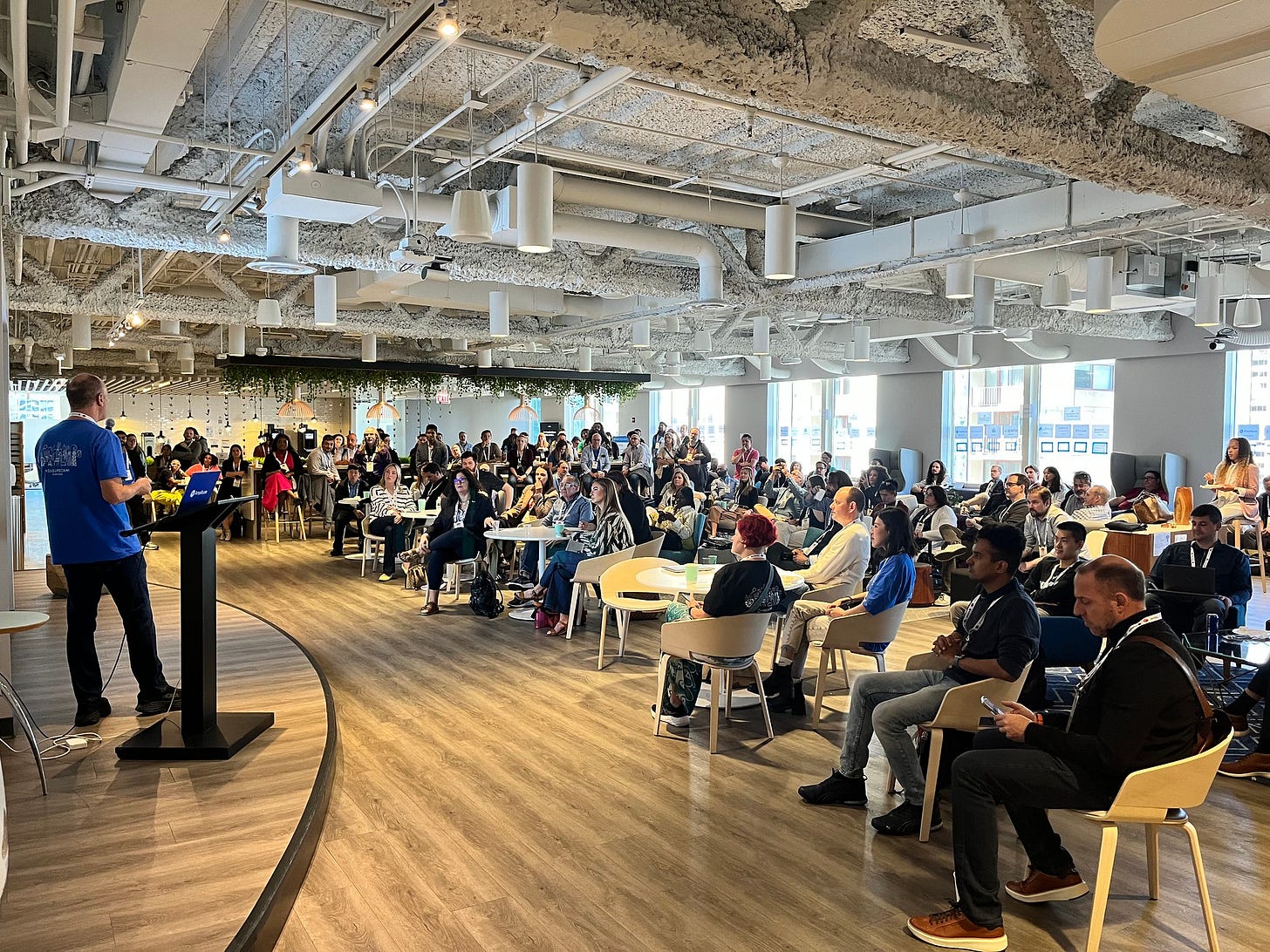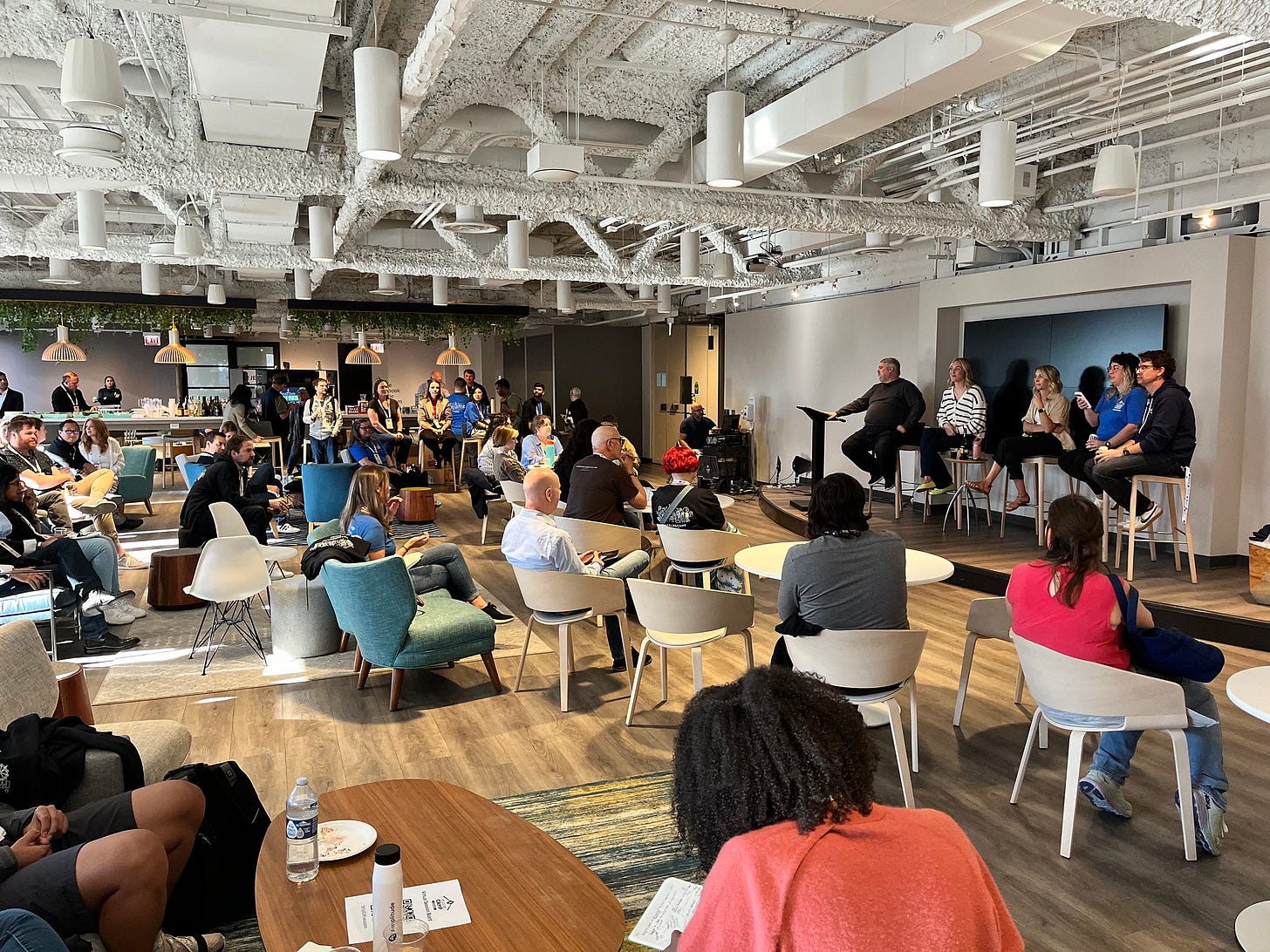This past Saturday, I helped organize the very first MeasureCamp Chicago, an “unconference” focused on digital analytics. MeasureCamp started in London 12 years ago and has spread to multiple cities around the world. It’s a completely free event and the speaker lineup is made up of whoever shows up and wants to get up and speak. It’s a really cool event for both learning and networking and I highly recommend attending if you are or want to be in digital analytics. I enjoyed it so much, I’m considering flying to other cities to attend their MeasureCamp events!
So anyway, what did I learn?
Best way to network: Plan events
Believe it or not, I’m not a naturally outgoing person. I’m shy and would much rather sit back and listen. Networking is something I’ve learned how to do, not something I was inherently good at.
But a great hack I’ve found for networking: If you are the one planning or organizing events, everyone will want to network with you. You won’t need to do the work of going up to people or thinking of questions to ask. People will constantly be coming up to you or reaching out to you on LinkedIn. They will also have a very favorable opinion of you and want to help you out when you need it.
The best part is, you don’t need to be an experienced data pro to help organize events. You just need to be willing to do the work, none of which has anything to do with analytics or data science.
“Spontaneous” speaker lineups are really cool
Unlike traditional conferences, for MeasureCamp events, we don’t schedule speakers in advance - but you create a blank session board, provide blank session cards, and then whoever shows up can fill out a card, pick a timeslot, and give a presentation. And we filled all 49 sessions (7 rooms with 7 timeslots) with really awesome presentations! Some were truly spontaneous (apparently there was a session on writing songs about analytics), and some that were strictly discussions around topics like freelancing). But most presentations were likely talks the speaker had given before at another event or had prepared in advance. Overall, the quality of the talks was on par with a traditional conference.
I did learn some stuff that I can apply to my job …
Lead with curiosity
I’m sure I’ve mentioned at some point that curiosity is an important trait in this field. One presentation - From Dashboarder to Trusted Advisor by industry veteran Jim Sterne - shared a lot of great tips for working with stakeholders/business partners and how to build trust and get buy in. One suggestion was instead of jumping into your insights and conclusions, share your analysis and ask your audience what they think. They might have additional context that they can share that might change your conclusions.
Revenue impact always
This isn’t a new idea or anything I didn’t already know, but a good reminder. The best way you can be impactful is to share insights that your stakeholders care about. In the business world, revenue and/or cost are pretty much always the most important things - if you’re not making money, your business will fail. And if you’re not making more than you spend, your business will fail. So if you can share your analysis and insights in terms of revenue or cost savings, share that. All of your fancy tools and analysis and visuals don’t matter if you’re not sharing something that leads to action.
Thermometer versus Thermostat
In another great presentation - Turning Analytics from a Cost Center to a Profit Center - industry veteran Adam Greco (from Amplitude) brought up the idea of being a thermometer - merely reporting what is happening - or being a thermostat - providing impact. If you can move from simply reporting data to using data to provide recommendations, you will be far more valuable to your company. (And more likely to move up in your career.)
Have you attended any conferences lately? What have you learned?
Need More Help?
While I may get paid if you engage with the links below, the opinions I share are my own.






I'm going in January for my very first data conference, Data Day Texas! I am naturally introverted, but I am excited to learn more about data.